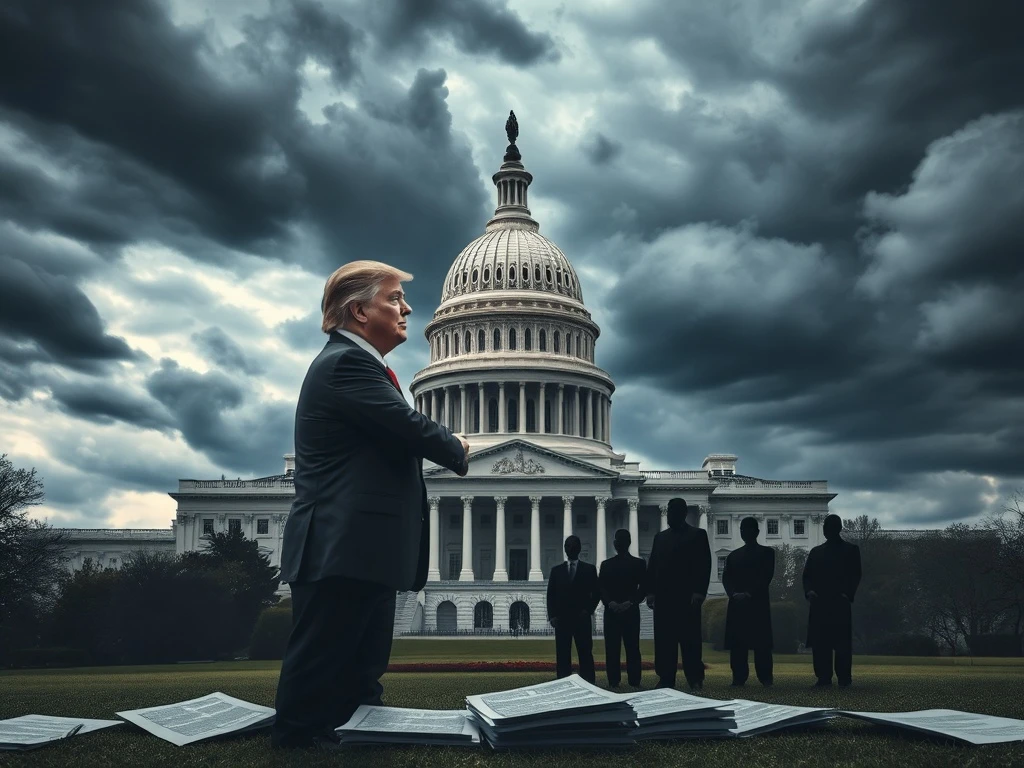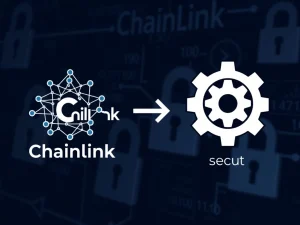**Scandalous** Trump Pardon of Binance CZ Triggers Fierce Senate Inquiry

The recent **Trump pardon CZ** decision has ignited a firestorm of controversy. This move has drawn sharp criticism from **Senate Democrats**, raising significant questions within the cryptocurrency community. Many are now wondering about the future of **crypto regulation** and law enforcement.
Senate Democrats Demand Answers on Controversial Pardon
Seven **Senate Democrats** have formally requested explanations from the US Attorney General and the Department of Justice. Their letter addresses President Donald Trump’s pardon of Binance co-founder Changpeng “CZ” Zhao. They label this action as a “corrupt move.” The lawmakers expressed concerns that it signals impunity for white-collar criminals. They argue that such pardons could encourage illegal activities. This is especially true if they financially benefit the President. Representative Maxine Waters previously voiced similar criticisms. She stated that Trump provides “massive favors for crypto criminals.”
Binance CZ Pardon: A Challenge to Law Enforcement?
The pardon of **Binance CZ** is facing intense scrutiny. Senators Elizabeth Warren, Chris Van Hollen, and Bernard Sanders were among the signatories. They assert that this pardon “will make it harder for Federal law enforcement to fight and deter crime.” Zhao pleaded guilty in 2024 to violating the US Bank Secrecy Act. He admitted to failing to maintain an effective Anti-Money Laundering program at Binance. Trump, however, claimed people told him “what he did was not even a crime.” This stark contrast highlights the contentious nature of the decision. Furthermore, it challenges the authority of federal legal processes.
Alleged Links Between Trump and Binance Spark Controversy
The senators’ letter also highlights several alleged connections between Zhao, Trump, and Binance. Trump’s family launched their DeFi platform, World Liberty Financial (WLFI), last year. Reports have linked WLFI’s operations to Binance. Accusations suggested that Zhao facilitated introductions for WLF leaders. CZ denied these claims in late May. Other reports indicate Binance’s role in developing the code for USD1. This stablecoin is issued by WLFI. Consequently, lawmakers suggest a direct financial benefit. “After Mr. Zhao’s company provided President Trump and his family with a revenue stream worth millions of dollars, President Trump pardoned him,” the letter stated. This claim forms a central part of their argument. It suggests a quid pro quo arrangement.
Lobbying Efforts and the Call for a DOJ Investigation
Earlier reports also claimed that Zhao’s pardon followed significant lobbying efforts. Binance allegedly spent $450,000 on Trump-linked lobbyists. Additionally, $290,000 went to Teresa Goody Guillén. She is a lawyer for CZ and a former SEC chair candidate. These financial ties have fueled suspicions of undue influence. Therefore, the **Senate Democrats** are demanding a thorough **DOJ investigation**. They seek clarification on whether Trump’s alleged financial links to CZ influenced his decision. They also want to understand the pardon’s expected effect on deterring crime. This is particularly crucial within the crypto industry. The integrity of law enforcement is at stake, they argue. This inquiry aims to uphold the rule of law. It also seeks transparency in high-profile legal decisions.
Future of Crypto Regulation Under Scrutiny
Lawmakers expressed deep concern about the pardon’s broader message. They fear it could “publicly and flagrantly undermine the work of federal law enforcement.” Such actions might tell “cryptocurrency executives and other white-collar corporate criminals that the law doesn’t matter.” This perception could severely impact future **crypto regulation**. It could weaken efforts to enforce financial compliance. Moreover, it might encourage further illicit activities. The senators’ inquiry underscores the urgent need for clear and consistent legal frameworks. It also highlights the importance of accountability for all, regardless of their status. Maintaining trust in the legal system is paramount for the crypto space’s legitimacy. Consequently, this pardon could have lasting repercussions on how digital assets are governed. This situation emphasizes the ongoing debate around political influence in financial oversight.









